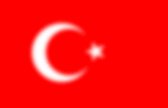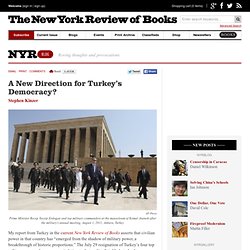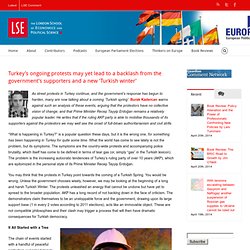

Erdogan's Decade - Hugh Pope. Prime Minister Recep Tayyip Erdoğan with Turkish military officers, Ankara, July 29, 2011.

Adem Altan/AFP/Getty Images The swirling currents of daily political life in Turkey enjoy a wild unpredictability. But in November 2002, when Recep Tayyip Erdoğan’s Justice and Development Party (Adalet ve Kalkınma Partisi, or AKP) swept to power with surprising strength, it turned out that it was riding one of Turkey’s regular underlying tides. This sudden popular reversal was much the same as in 1950 when a similar surge of votes brought Adnan Menderes and the Democrat Party to power. And it happened again in 1983 in favor of Turgut Özal and the Motherland Party. It was not immediately obvious that Erdoğan would emerge as such a national leader. The jury is still out on the achievements of the AKP’s first decade.
As with the Menderes and Özal parties before it, the fate of the AKP is above all linked to Prime Minister Erdoğan. ‘Brother Tayyip’ Divorcing the EU Generals and Headscarves. A New Direction for Turkey’s Democracy? by Stephen Kinzer. My report from Turkey in the current New York Review of Books asserts that civilian power in that country has “emerged from the shadow of military power, a breakthrough of historic proportions.”

The July 29 resignation of Turkey’s four top military commanders was a capitulation to that reality. It is likely to lead to something Turkey has never known: civilian control of the military. There was a time—indeed, for most of the period that the Republic of Turkey has existed—when military commanders unhappy with an elected government would simply depose it. The last such assault, which I covered for The New York Times, came in 1997, and the way it was done reflected how powerful the military had become. There was no parade of tanks or storming of public buildings. Now the opposite is happening. Now elected civilians are deciding what the military can and cannot do. Turkey’s protests: Still out on the streets. Turkey’s ongoing protests may yet lead to a backlash from the government’s supporters and a new ‘Turkish winter’ As street protests in Turkey continue, and the government’s response has begun to harden, many are now talking about a coming ‘Turkish spring’.

Burak Kadercan warns against such an analysis of these events, arguing that the protestors have no collective vision of change, and that Prime Minister Recep Tayyip Erdoğan remains a relatively popular leader. He writes that if the ruling AKP party is able to mobilise thousands of its supporters against the protestors we may well see the onset of full-blown authoritarianism and civil strife. “What is happening in Turkey?” Is a popular question these days, but it is the wrong one, for something has been happening in Turkey for quite some time. What the world has come to see lately is not the problem, but its symptoms. You may think that the protests in Turkey point towards the coming of a Turkish Spring. Credit: Burak Su (Creative Commons BY SA) It All Started with a Tree On May 28th, police forces responded with their signature method: gas.
Protocols of the Interest Rate Lobby - By Piotr Zalewski. ISTANBUL — Thick, boisterous crowds poured into Kazlicesme, a neighborhood miles away from Istanbul's city center, where Turkey's prime minister, Recep Tayyip Erdogan, was due to deliver a speech at a rally on Sunday, June 16.

Three weeks into a wave of anti-government demonstrations and riots that began as a small sit-in against the planned demolition of a small public park and quickly swelled into the biggest challenge to Erdogan's rule in years, the rally, dubbed "Respect for the National Will," was meant as a show of strength and defiance by the prime minister's supporters. To judge by the numbers alone, it did the job. By the time Erdogan began speaking, the crowds had reached an estimated 300,000. Pro-government media kindly put the figure at over a million. Kemal said of the protesters half a city away, "These groups, they're completely marginal, they have no support from their own citizens. Her friend, Gulcan Bayram, weighed in. Others have dug even deeper.